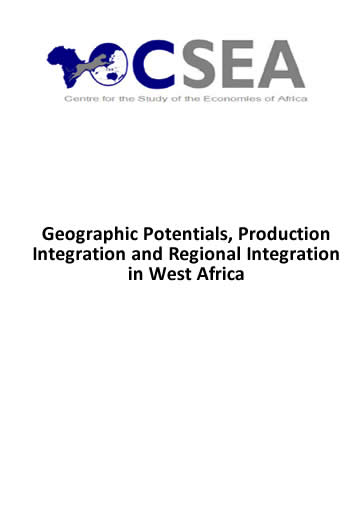Author:Olumuyiwa B. Alaba
Document Size:17pages
This paper discusses the geographic characteristics of West Africa and diverse productive activities in each of the geographic location and its implications for regional integration. It presents vegetation, mineral endowments and variants of economic activities across the region. The paper identifies products and activities of common interests to clusters of countries and potential for region production clusterization and trade in the West Africa.

